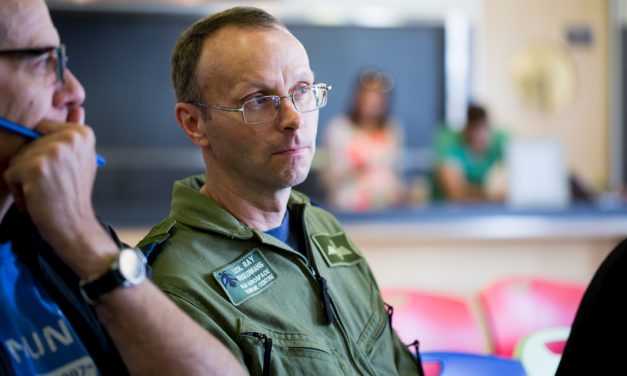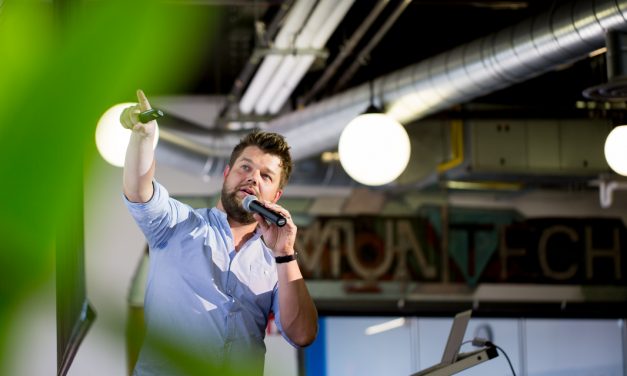The Royal Canadian Air Force’s corporate innovation lab at Communitech has a new ally in its quest to drive innovation.
Last April, the Government of Canada rolled out a 20-year, $1.6-billion program designed to quickly and efficiently target problems faced by various branches of the military and the Canadian security establishment. The initiative aims to attract companies with innovative ideas to solve those problems, and just as quickly put money in the hands of innovators for doing so.
“We’re developing the program to behave at the speed of innovation,” says Eric Fournier, Director-General, Science and Technology Strategic Decision Support with the Department of National Defence.
The program is called IDEaS – Innovation for Defence Excellence and Security – and invites the various branches of the Canadian military and security community to identify their pain points, and then invites entrepreneurs to come up with solutions. Entrepreneurs get paid, they retain their IP and they gain the government as a customer. The military gains access to technology that it wouldn’t necessarily have had the time or resources to develop itself.

Lieutenant-Colonel Ray Stockermans. (Communitech photo: Sara Jalali)
“We’re trying to engage with industry,” says Lieutenant-Colonel Ray Stockermans, who oversees the RCAF’s Flight Deck, the Air Force’s innovation lab at Communitech. “One of our problems is how do we actually get money to some of these companies.”
Fournier laid out the program’s rationale on stage Tuesday at Communitech, a discussion that immediately followed a Pizza with the Prez lunchtime talk by Cory Flatt, CEO of Kitchener software startup Bonfire. Flatt delivered what Communitech Vice-President Greg Barratt afterward called, “a masterclass on fundraising.”
Fournier and Stockermans both acknowledge that military procurement, and engaging with government, is often a slow and cumbersome process. The IDEaS program was designed to clear a path through the red tape and allow for the rapid adoption of useful solutions.
“We know that contracting with government can sometimes take a long time,” says Fournier. “We’ve built processes to be efficient. It’s all computer based. The evaluation process is going to be quick. The contracting process will be quick. The money is fixed.”
Fournier says the IDEaS program, which is modelled after similar initiatives already underway in the U.S., the U.K., and Australia, has five “tools,” through which innovators can submit proposals.

Corry Flatt, CEO of Bonfire. (Communitech photo: Sara Jalali)
“We evaluate them, we look at the ones that pass the threshold and we’ll fund many,” he says. Those accepted are eligible for up to $200,000 for a period of six months. The best of those advance to the next stage and qualify for up to $1 million for a year. A select few can further qualify for up to $20 million.
This year the program will make $50 million available to entrepreneurs, and then will follow with $85 million for each of the next 19 years. Fournier said the hope is that the technology unearthed by the program will not only solve problems for the military, but be applicable on civvy street, as well.
“We’re solving challenges that come from the military and the security world; however, we hope that if Company X that answers a challenge, it will use that technology to develop something for the civilian world and generate jobs,” he said.

